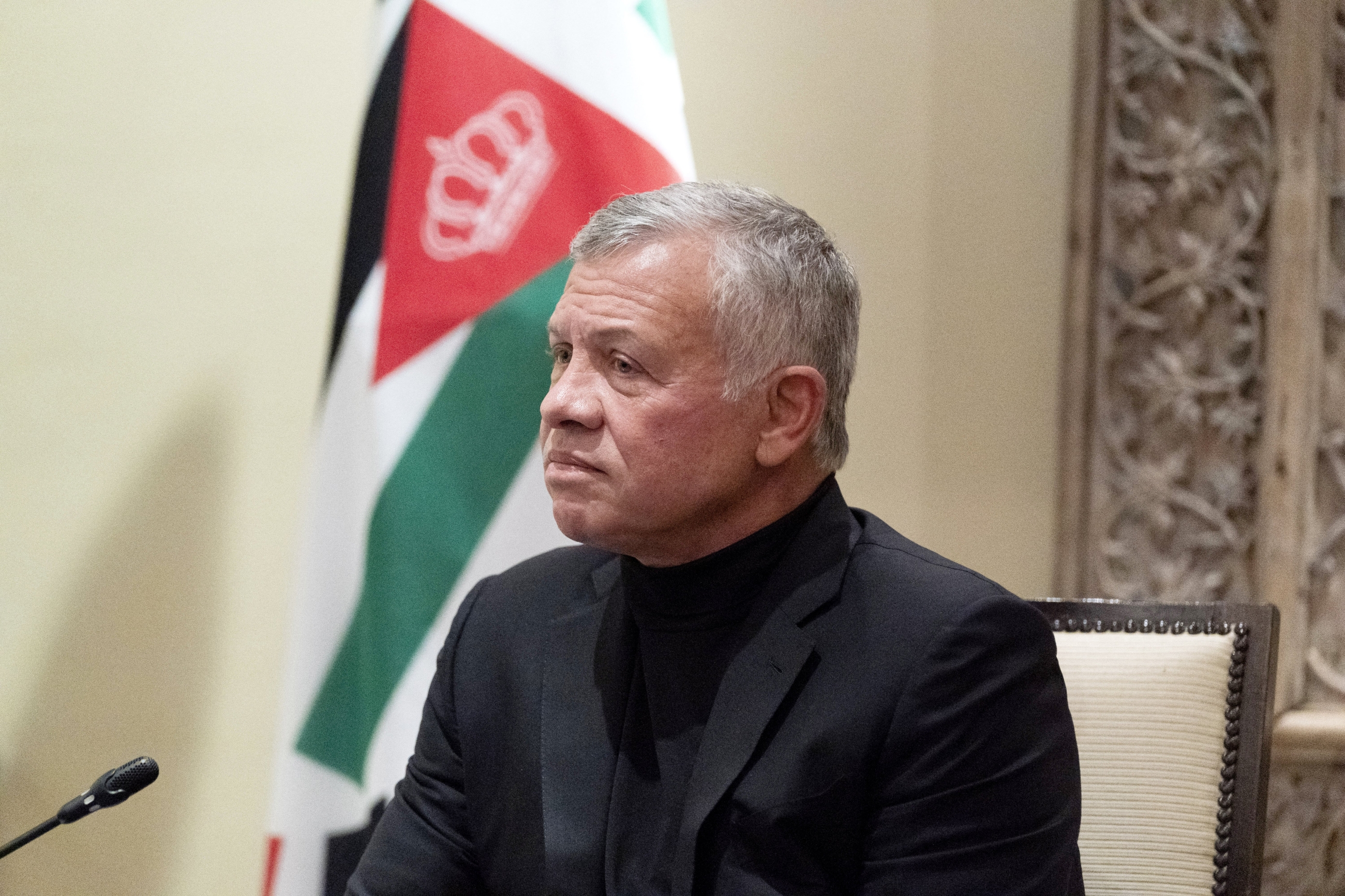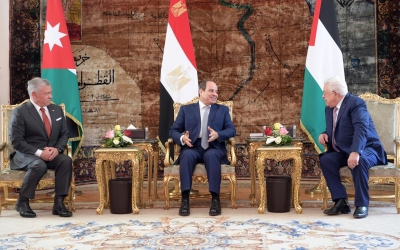Jordan's King Abdullah held secret meeting with Israel president

Israeli President Isaac Herzog revealed on Saturday that he recently met in secret with King Abdullah II of Jordan in Amman, in the latest sign of warming diplomatic ties between the two countries.
"Last week I met and had a very long conversation with the king of Jordan, I was in his palace, an entire evening. It was an excellent meeting," Herzog said in clips from an interview broadcast on Saturday on Israeli television.
The entire interview will be shown on Sunday evening on the eve of the Jewish new year.
"Jordan is a very important country. I have immense respect for King Abdullah, a great leader and a highly significant regional actor," Herzog said in a statement issued by his office.
The statement spoke of a "warm meeting, held at the king's invitation", during which the two discussed "deep strategic issues".
New MEE newsletter: Jerusalem Dispatch
Sign up to get the latest insights and analysis on Israel-Palestine, alongside Turkey Unpacked and other MEE newsletters
"Among the things we discussed were the core issues in the dialogue between our states, including an agreement to import agricultural produce during the shemitah (agricultural sabbatical) year, energy issues, sustainability, and solutions to the climate crisis that we can advance together," the statement said.
Jordan and Egypt are the only two states bordering Israel to have signed peace treaties with the country.
Israel-Jordan relations deteriorated under the premiership of Benjamin Netanyahu, whom critics accused of neglecting the Hashemite kingdom in favour of agreeing to normalise ties last year with the United Arab Emirates, Bahrain, Sudan and Morocco.
However, shortly after he took office in June, new Prime Minister Naftali Bennett flew to Amman for talks with King Abdullah.
In July, the two countries agreed that Israel would sell 50 million cubic metres of water a year to Jordan, in addition to the 55 million cubic metres it already provides free of charge.
Under this agreement, Jordan is allowed to increase its exports to Palestinians in the West Bank, which Israel has occupied since 1967.
Diplomatic meetings
On Thursday, Egypt's President Abdel Fattah el-Sisi, King Abdullah II and Palestinian Authority President Mahmoud Abbas met with the stated aim of reviving the peace process in the Middle East.
The three leaders were scheduled to discuss how to work with US President Joe Biden to push Israel to end its occupation of the West Bank and East Jerusalem, cease its expansion of illegal settlements in the occupied territories, and further push for a two-state solution.
The Egyptian president was also expected to hold a meeting with Bennett in the town of Sharm el-Sheikh in the Sinai peninsula - although details on the timing of the meeting remain to be announced.
On Wednesday, Bennett issued a statement denying reports that he would be attending the meeting along with Abbas and Abdullah.
But the Cairo meeting came days after Abbas met with Israeli Defence Minister Benny Gantz in Ramallah, in the highest-profile meeting between the two sides in years.
On Monday, Israel agreed to lend the PA more than $150m in the wake of the Abbas-Gantz meeting, in order to help the PA pay the wages of its nearly 130,000 employees.
Bennett met with Biden at the White House in late August. While Biden reiterated the US's support for a two-state solution, Bennett maintained that there would be no Palestinian state as long as he is prime minister.
Middle East Eye delivers independent and unrivalled coverage and analysis of the Middle East, North Africa and beyond. To learn more about republishing this content and the associated fees, please fill out this form. More about MEE can be found here.


